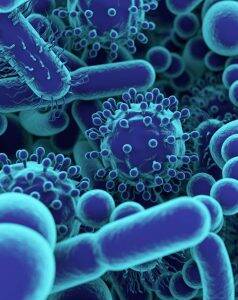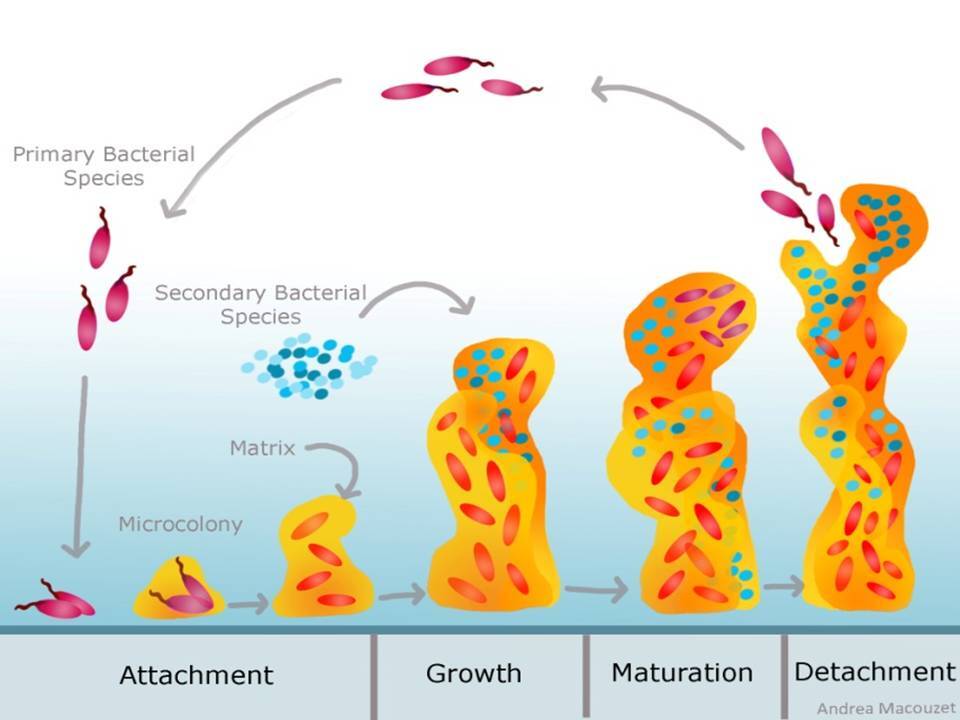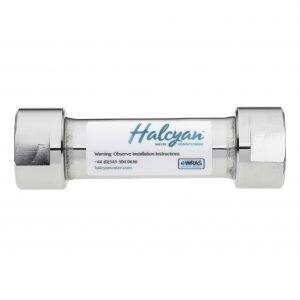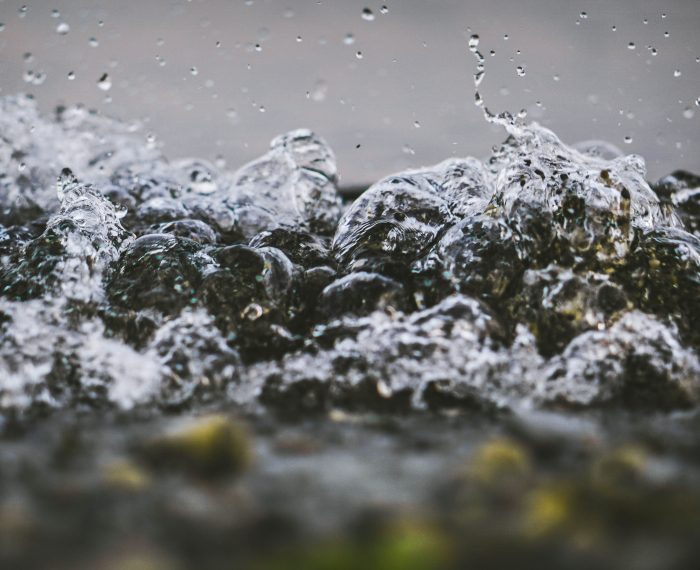We all know the problems caused by limescale. Forming on heating elements causing them to break down. Building up in kettles, reducing efficiency until a replacement is needed. Ruining pristine bathroom and kitchen surfaces with hard crusty layers. But what you might not be familiar with is the role limescale has as a breeding ground for bacteria. In this article we’ll take a quick look at how and why limescale provides a suitable habitat for bacterial growth and what you can do to stop it.

Limescale and Biofilm
Limescale forms due to the minerals in hard water precipitating out and bonding onto surfaces. Especially in areas where water sits for extended periods of time or where water evaporates. In domestic settings the kitchen and the bathroom are the prime candidates for limescale formation. These deposits appear in hard crusty and uneven layers and it is on these layers that growth occurs.
The uneven crusty formation of limescale provides the prefect surface for bacteria to adhere to. Not only do small pools of water get trapped in the cracks and crevices of the limescale but the rough surface makes an easy anchor point for microorganisms. Limescale is also mineral rich providing an ample food source for some bacteria. Once limescale has formed, early pioneer bacteria will attach to the surface and begin to form what is called a biofilm.

Biofilm and Pathogens
Biofilms are collections of one or more species of microorganism including fungi, bacteria and protists. Once some bacteria have colonised the surface their presence makes it easier for more to do the same. Over time the biofilm grows and spreads. In bathrooms this often appears as a red or black slimy build up. Other than looking very unpleasant this film can permanently stain and pit surfaces. In some cases, it can harbour bacteria which can cause disease in humans. Some pathogens which are known to grow in biofilms include E.coli, P. aeruginosa, S. marcescens and species of the Genus Legionella which cause legionnaires disease.
How to Prevent Bacterial Growth Due to Limescale
So how can the formation of biofilm be prevented? The key of course is regular cleaning. But the presence of solid, hard limescale can make this far more difficult than it should be. The installation of a water conditioner can make your regular bathroom and kitchen cleaning significantly easier. Both of these systems will help keep surfaces clean thereby preventing that bacterial build up.
The Halcyan Water Conditioner treats the entire home, removing existing limescale and preventing future limescale build up. This not only reduces the opportunity for bacteria to grow, but also makes appliances easier to clean. If you’re ready to treat your hard water and prevent limescale build up in your home, why not check out our most popular product, the ‘Favourite’ Whole House Unit.




